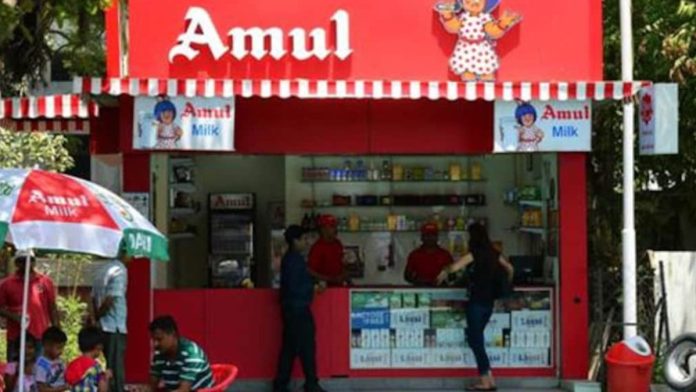India’s biggest diary brand Amul is planning to launch its products in Europe by the end of this month, managing director of the company and Gujarat Cooperative Milk Marketing Federation Jayen Mehta said Monday.
“We will be launching milk…fresh products in Europe by the end of this month,” he said at the annual convocation of Indian Institute of Foreign Trade (IIFT) here.
The company’s European foray will be through a tie-up with a milk cooperative in Spain, he said. Milk will be procured from the Spanish Cooperative and processed by it for sale in the whole of Europe. While the production will be done by the cooperative in Spain, marketing and branding will be Amul’s.
After starting with milk, Amul plans to expand its range of product offerings in Europe with the launch of ghee, dahi and paneer (Indian cottage cheese). For making those products Amul will be providing machinery to the Spanish cooperative.
The local tie-up will save Amul the hassle of exporting milk directly from India to the EU market. While the European Union allows imports of milk and milk products, the duties are high and compliance requirements are long. Countries from where milk imports are allowed are put in different categories and certification requirements of each are different. A licence to export has to be procured. The products are tested at the borders and have to be accompanied by health certificates of animals. However, the EU allows imports on lower tariffs with countries with which it has trade agreements.
Also ReadAsian Paints loses colour amid muted Q2 demand
India has, however, been reluctant to include the dairy sector in any of the free trade agreements (FTAs) that it is negotiating or is part of. Despite India being the largest producer of milk since 1998, the dairy is a sensitive sector as much of it depends on small farmers owning a few milch animals and cannot compete with big dairy companies who source milk from farmers with an average herd size of 8,000 to 10,000 animals.
To protect its daily industry India imposes import duties of up to 68% and over that there are strict compliance requirements which effectively make these imports unviable. The government has maintained strict controls on dairy product imports such as skimmed milk powder (SMP) and fat and has not allowed any imports since 2011–12.
» Read More


